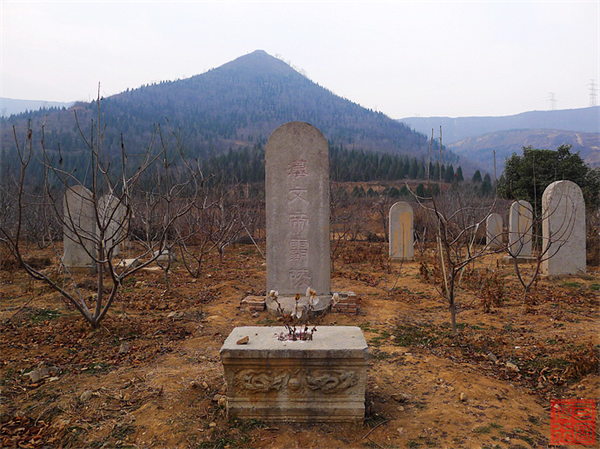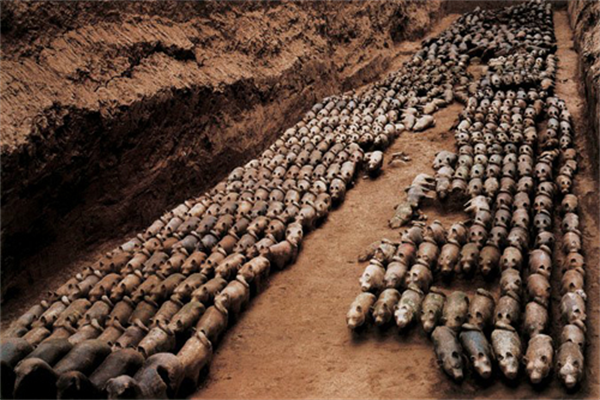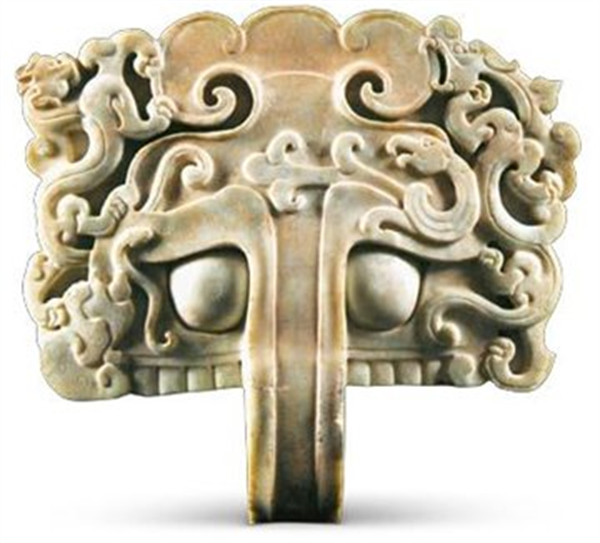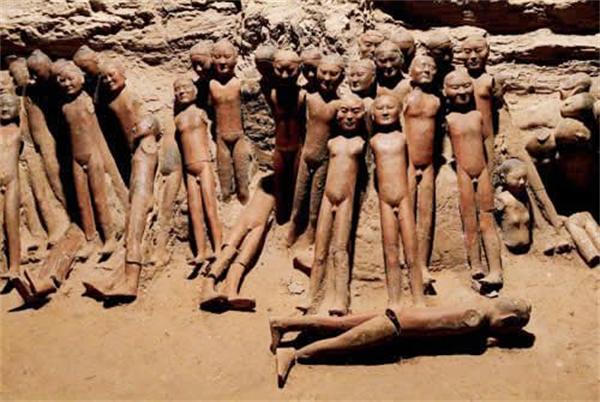The Splendid Early Han Dynasty
Compatible strategies are imperative for social solidarity and national development. In the early Han Dynasty, the ruler drew lessons from the failure of the Qin Empire’s Legist’s policies and the tyranny of the government, adopted the Taoist ruling concept of “governing without doing anything against nature”, which helped the Han Empire out of economic disorder and social upheavals left by the Qin Dynasty and enter a stage of satisfaction and abundance during the reign of Emperor Wendi and Emperor Jingdi. That explains why such descriptions as social solidarity, big harvest, peaceful boundary and self-satisfaction were pervasive in the historic records of the Han Dynasty.
The concept of “governing without doing anything that goes against nature” is an encompassing principle initially proposed by Lao-tzu, the founder of Taoism in the pre-Qin Period. According to Lao-tzu, ruling a big nation is like cooking a small fish, which abstains from continual stirring and disturbing the common people. Constant changes of national policies would result in misgivings and thus the national disorder; settled and well-regulated principles and rules, on the other hand, would lead to nothing but strong national power and military strength. To comply with such a concept, rulers of Han adopted light taxation and abolished severe punishment to ensure common people a satisfactory life during Emperor Wendi and Empeor Jingdi’s reign. Besides, the concept emphasizing constancy and peace with the common people was also adopted in official appointment, which proved to be a successful policy.

Baling Mausoleum of Emperor Wendi of Han
During this period, officials were generally appointed with prudent consideration and would serve for quite a long term without being shifted. Some local officials served their official position for his lifetime in a single place and their offspring even took their official positions as their surnames. As recorded in historic books, such surnames as Cang, Ku, Yu etc. are used by the offspring of the officials in charge of storage during the period. Policies remained unchanged in the first 70 years which were later known as the Period of Emperor Wendi and Emperor Jingdi of Han, a stage with strong national strength and great abundance.

Pottery animal figures excavated in Yangling Mausoleum
The appearance of the period of Emperor Wendi and Jingdi is attributive to the personal ethics of the two emperors. Rulers in the early Han Dynasty knew well about the way to govern and were self-restraint, a tradition originated in the early Han and flourished during the reign of Emperor Wendi. Liu Bang blamed Xiao He for the building of the over majestic Weiyang Palace, which showed his self-control in using the national wealth and pursuing luxury life. The following Emperor Huidi and Queen Lv also pursued simple life style. Emperor Wendi and Emperor Jingdi were self-restraint in various aspects and made great contribution to the establishment of a clean and thrifty society. Emperor Wendi once intended to build a terrace but gave up for its high cost equaling to the riches of ten common households. His favored concubine wore plain clothes and lived in plain tent. Different from Emperor Qin Shihuang who ordered the construction of massive tomb, Emperor Wendi had a simple understanding of death, regarding it as the way of all flesh, and therefore he ordered his tomb Baling Mausoleum being constructed with pottery instead of gold and silver components and the tomb being merged with the natural mountain instead of piling up a mound, which was rarely seen for emperors of other dynasties. Emperor Jingdi also gave he imperial decree that splendid carvings and inscriptions be prohibited and required officials of various ranks emphasize farming instead of wealth accumulation, which were all included in the laws and regulations at that time. Although the personal conducts are not decisive factors for the advancement of society, self-disciplined and simple lifestyle is indefinitely conducive to the correction of social morality, saving of national wealth and detention of extravagance and waste. Since the third year of his reign, Emperor Jingdi started the construction of his tomb, which lasted for 26 years. But different from other luxury emperors who buried with them a large batch of luxuries, Emperor Jingdi had with him in his tomb, the Yangling Mausoleum, only a small number of luxuries with most of the burial objects being domestic animals, poultry, grains and animal models including horse, cattle, sheep, pigs, dogs and chicken etc. Even the sheep form groups of various breeds, ages and genders. All these burial objects are typical of common households, which make the tomb distinctive from previous ones. The tomb provides evidence for the historic record that Emperor Jingdi pursued simple and thrifty lifestyle and meanwhile illustrates the advanced productivity of that age, the flourishing farming economy and the panoramic view over the well-off society during that period.

The animal head appliqué excavated in one accompanying tomb of Maoling Mausoleum
The flourishing period of Emperor Wendi and Emperor Jingdi is not totally credited to the two emperors. It is fulfilled through joint efforts of rulers of the early Han Dynasty under the guiding principle of sustained national policy. It was regarded by rulers of following dynasties not because of its flourishing economy but the deep reasons behind the splendor, including drawing lessons from previous failures, making proper adjustment in the national policies and the maintaining of effective national policies and regulations.
The period of Emperor Wendi and Emperor Jingdi is of special significance in inheriting the glorious achievement of Emperor Gaozu of Han and heralding the splendor of the following generations. It laid the substantial foundation for the rich society for generations of Chinese people and in the meantime drew the curtain of another flourishing age— Emperor Wudi’s Flourishing Age.

Polychrome housemaid figure
From the establishment of the Western Han Dynasty, rulers maintained a reserved policy of pursuing peaceful development and tried to shun from wars. Over that period the state was newly established and could not afford the massive military spending. Therefore, faced with the aggressive Huns, the rulers of early Han could do nothing but make peace by marriages with the minorities. Things were different during Emperor Wudi’s reign. After Emperor Wudi came to the throne, he changed the peaceful policies of the previous age and launched wars against the neighboring minorities. Relying on the solid national strength accumulated during the previous years, he sent the generals Wei Qing and Huo Qubing to launch several battles against the Huns and eventually settled the neighboring issues with the northern minorities, which helped promote the development of Hetao Area along the banks of the upper and middle reaches of the Yellow River and Hexi County in the recent area west of the Yellow River in Shaanxi Province. It also laid solid foundation for the stabilized situations along the northern border area for more than half a century. Meanwhile, the establishment of Wuwei, Zhangye, Jiuquan and Dunhuang prefectures expanded the territory in North China during the Han Dynasty. Apart from battles against the Huns, Emperor Wudi also launched battles against other neighboring countries. To the east, he defeated the Korean Kingdom, establishing Zhenfan, Lintun, Lelang and Xuantu prefectures under its direct administration.

Maoling Mausoleum of Emperor Wudi of Han—the largest Han Mausoleum with the richest burial objects
After launching battles against the neighboring minorities, Emperor Wudi of Han greatly expanded the Chinese territory to its record size in 2,000 years and fulfilled the unrealized “unification” dreamed by Emperor Qin Shihuang. Besides, Emperor Wudi adopted a series of policies which were followed by following generations. The Confucianism he venerated, for instance, was not only followed by his successors in the Han Dynasty but also adopted by rulers in the following more than 2,000 years as the basic administrative policy and the basic value system pursued by all Chinese. Recent excavation revealed that among all the imperial tombs of the Han Dynasty, the mausoleum of Emperor Wudi was the largest which proves the exploits and position of Emperor Wudi in the history of the Han Dynasty.


